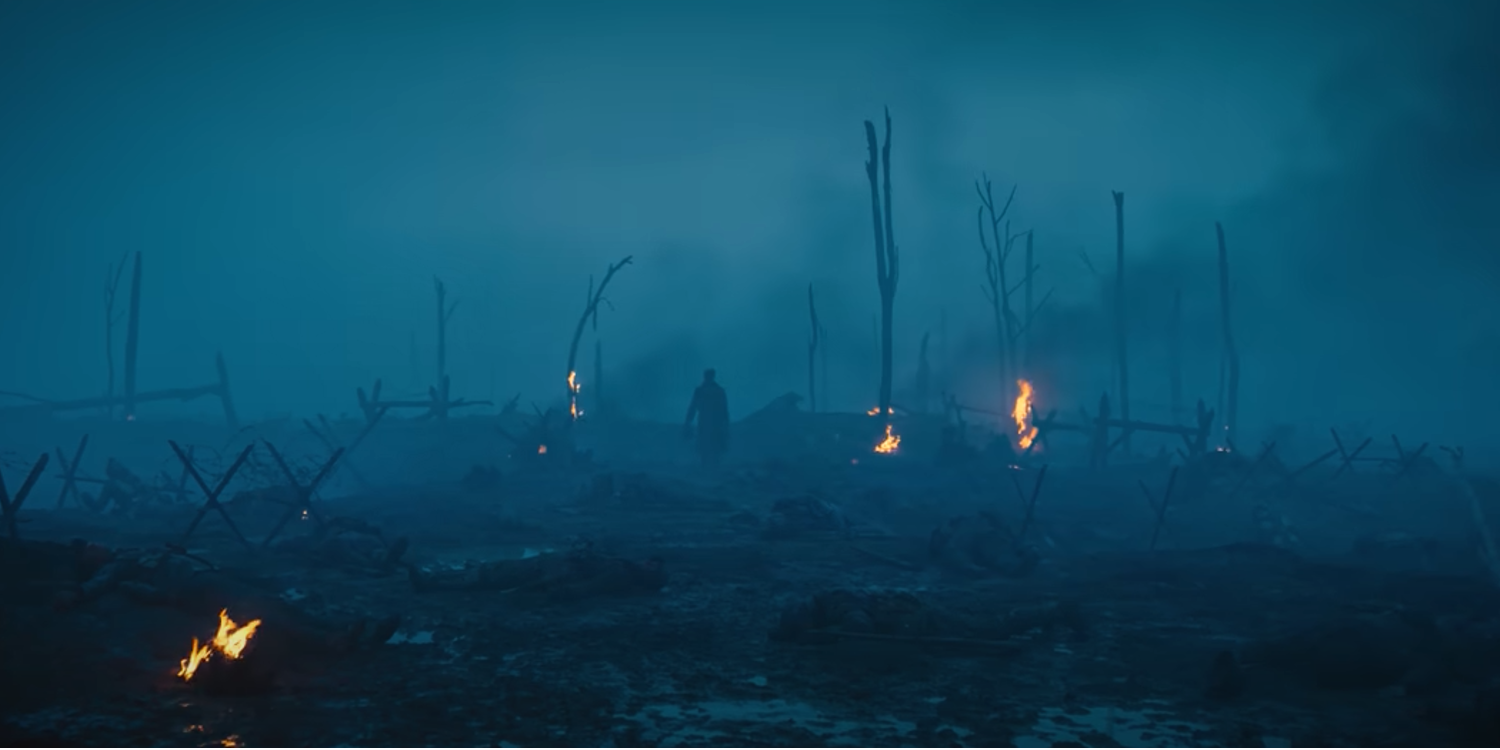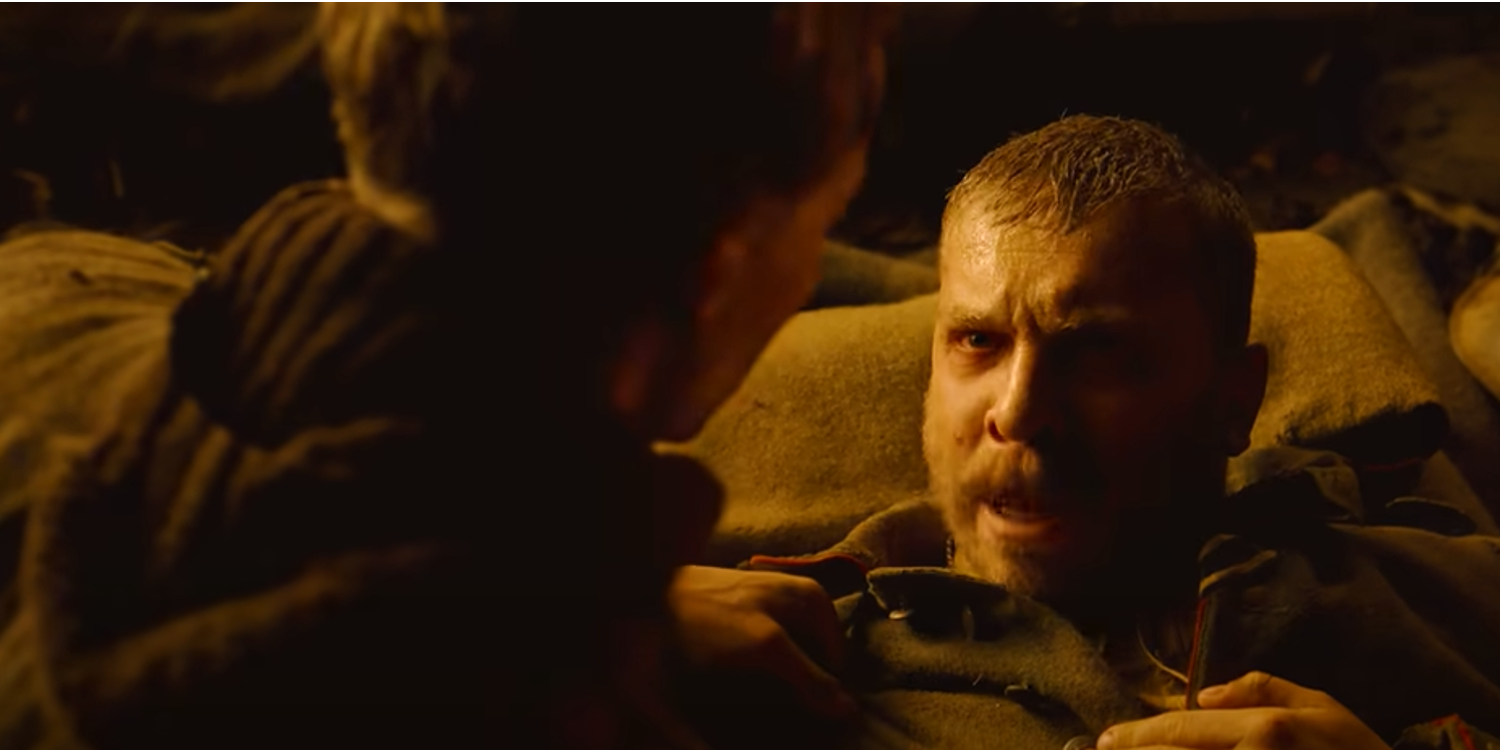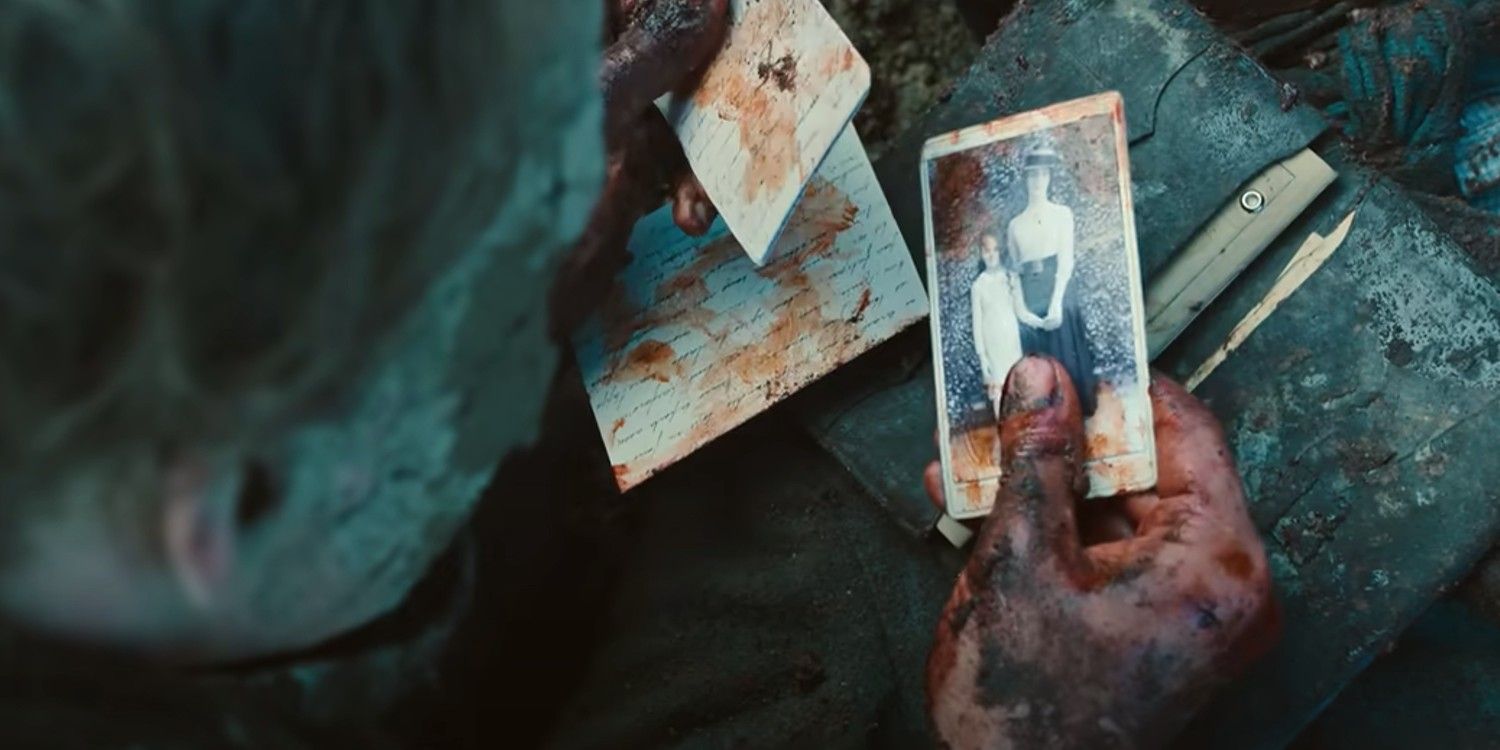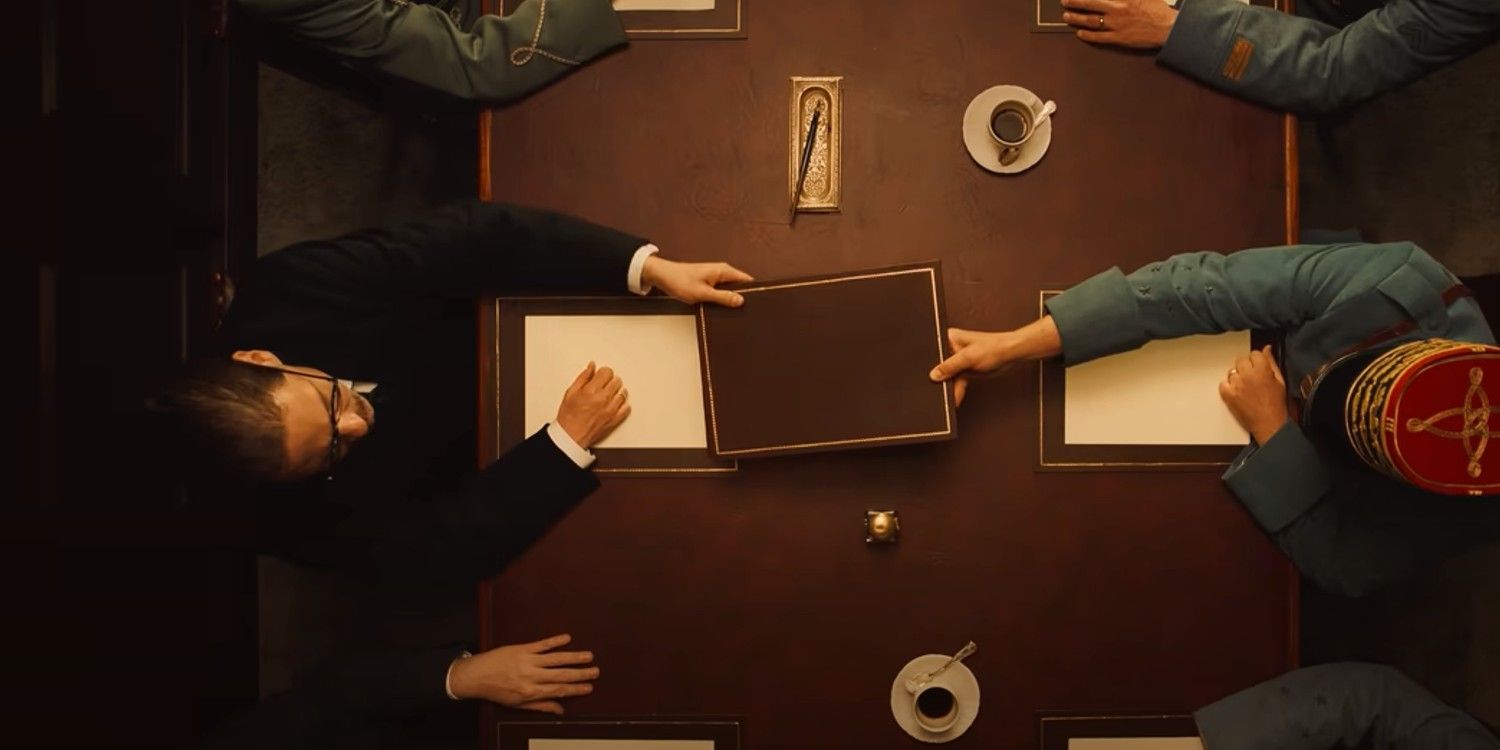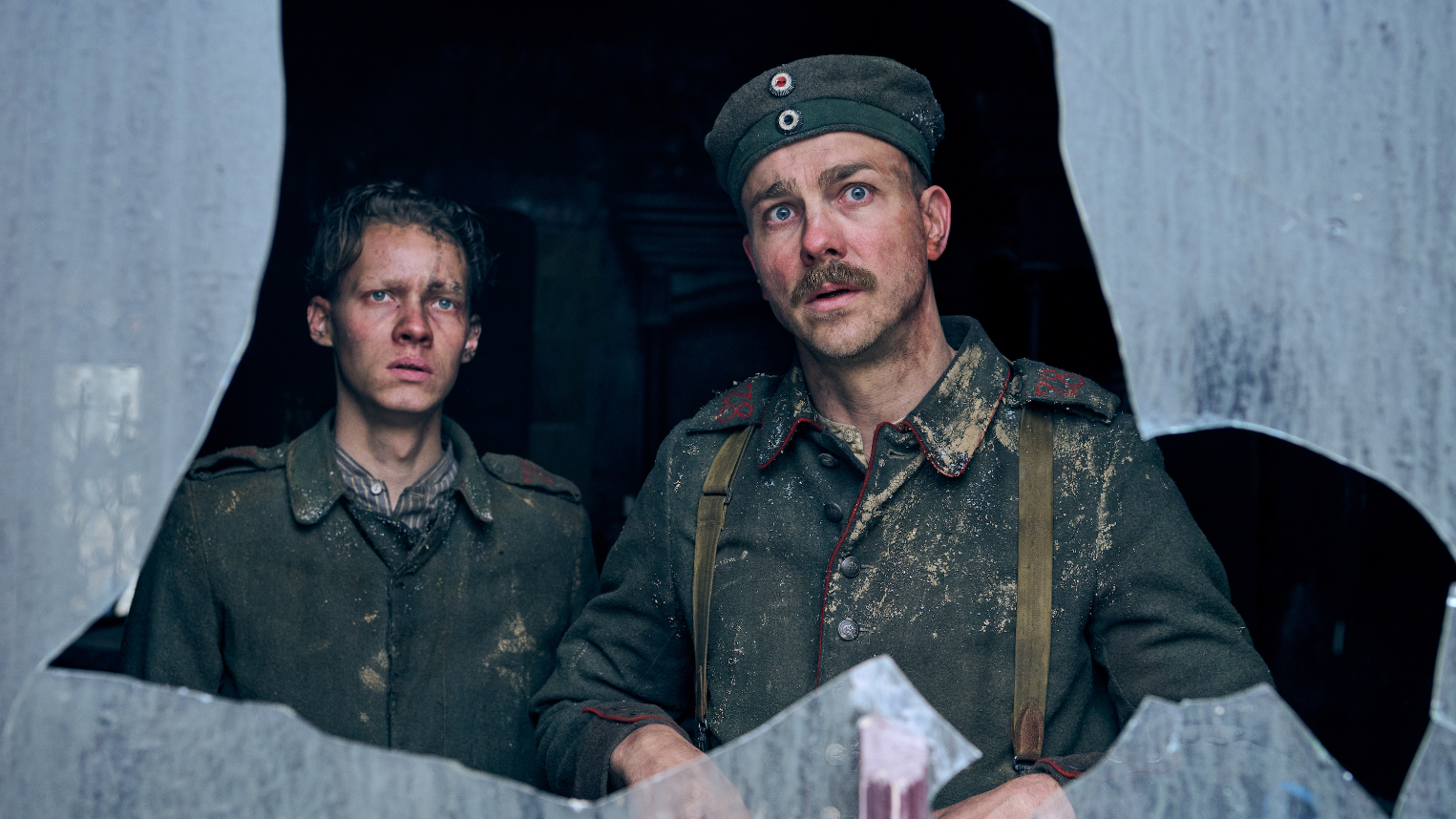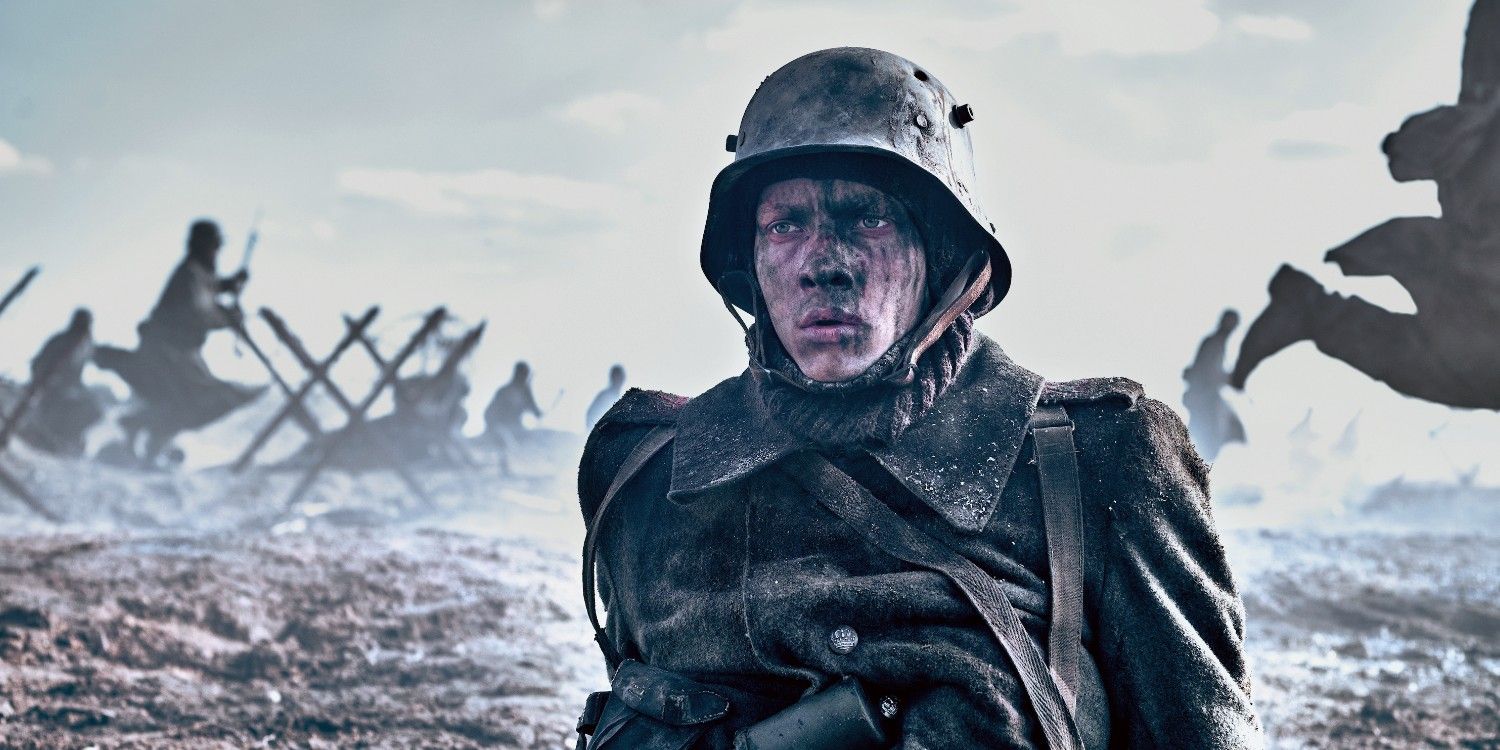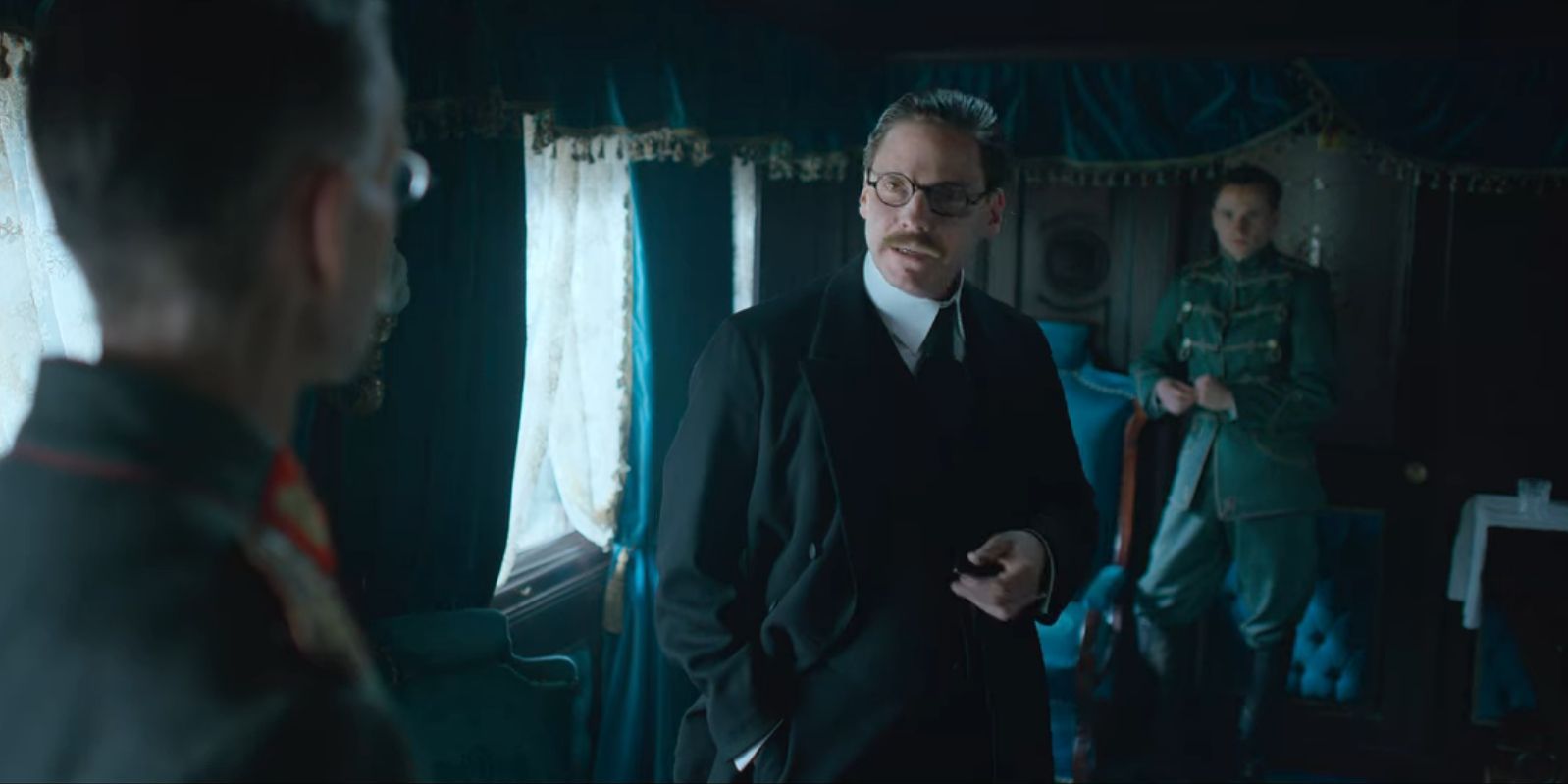All Quiet On The Western Front Ending Explained (In Detail)
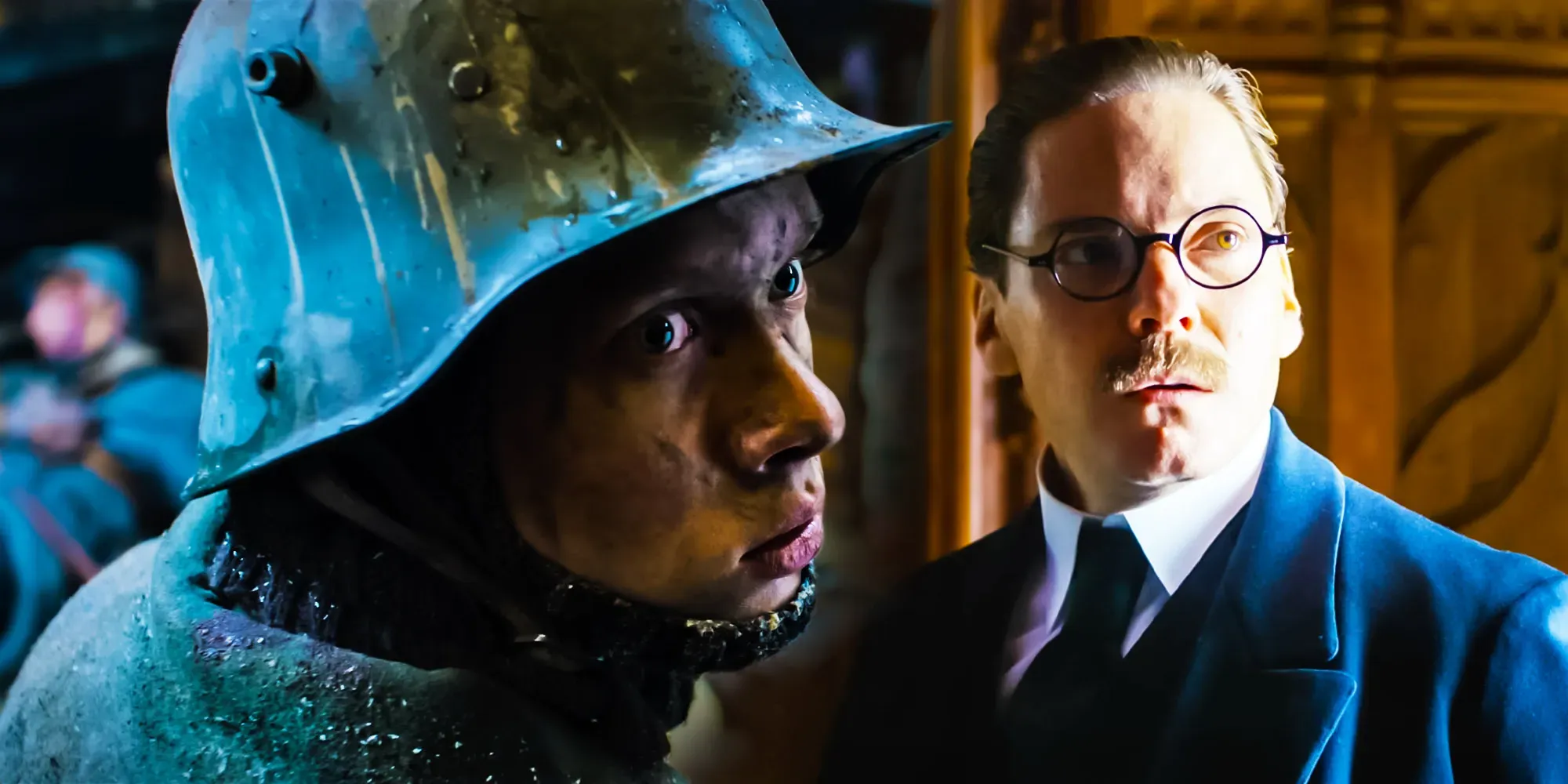
Contains discussion of suicide.
Warning! Spoilers for All Quiet on the Western Front! Netflix’s All Quiet on the Western Front is a hard-to-watch film that deals with a fictionalized account of real history that can leave plenty to explain. Edward Berger’s All Quiet on the Western Front ending explained the story of Paul Bäumer (Felix Kammerer), a young soldier who lies about his age to enlist during the final years of World War I (WWI). During his time fighting, Paul cycles between the western front and reserves while Matthais Erzberg (Daniel Brühl) tries to negotiate an armistice. Paul’s fall from a naive patriot to a jaded veteran in the face of a horrific war is as relevant today as it was when the book was first published in 1929. All Quiet on the Western Front‘s themes resonated with audiences, so much so, that the movie has been nominated for nine Academy Awards for the 2023 Oscars.
At its core, All Quiet on the Western Front is a stringently anti-war film that examines the conflict between the ideals of war and its reality. The original story and Berger’s remake approach this divide by heightening it, contrasting just how far the gap is between the commanders and diplomats and the infantry soldiers during WWI. Emphasizing this aspect of the film by showing the negative impacts of the war on the everyday soldier along with an account of the days leading up to the signing of the armistice propels All Quiet on the Western Front‘s theme alongside its harrowing violence. Here’s the All Quiet on the Western Front ending explained.
The Meaning Of The Clock In All Quiet On The Western Front’s Ending
The third act of All Quiet on the Western Front is a flexible and extended affair, as Paul’s side of the story is not so much plot-driven, but an immersion in the experiences of the German soldiers from 1917 onward. Overall, there is a sense of temporal disorientation as the movie jumps between the compressed period leading to the signing of the armistice and vignettes, sometimes with months between them. This explores how the soldiers in the trenches perceive time differently due to the extreme danger they face intermixed with incredible tedium. Even more so, clocks and time become critical recurring motifs as the All Quiet on the Western Front ending explained, as the infantrymen count down the moments they have to survive until the war was over.
The clock at the end of All Quiet on the Western Front is cut so that its scene marks the end of the movie and the war while also acting as a tragic reminder of how the commanders of WWI squandered the lives of their soldiers. As the All Quiet on the Western Front ending explained, General Friedrichs (Devid Striesow), Paul’s commanding officer, insists on drawing out the war effort right up to 11 a.m. for the sake of patriotic pride. As such, despite how the war has stretched time into years of suffering, these last few minutes suddenly become very critical, and are highlighted by the clock itself. With this grandfather clock, the war is finally over, yet the resolution comes too late for Paul, emphasizing the true story of how, since 1917 and earlier, the soldiers were living on borrowed time that was pointlessly spent by their superiors.
Why Does Tjaden Kill Himself In All Quiet On The Western Front?
However, All Quiet on the Western Front is careful to show the plight of the common soldier in many respects, not just on the battlefield. When Tjaden Stackfleet (Edin Hasanovic), one of Paul’s comrades, is shot in the leg, the All Quiet on the Western Front ending explained he kills himself even though he was likely to survive the injury. His end, much like Rosie’s death in Jojo Rabbit, provides a new angle on the impacts of war.
While it seems improbable that a soldier would give up the chance at surviving such a deadly war so close to the end of the conflict, Tjaden’s death in All Quiet on the Western Front depicts the plight of many on both sides of WWI. His choice represents how for soldiers who survived the fighting, the futures they might have had before enlisting are forever altered, depicting another form of death where the soldiers who left home and those who returned are fully different people. In Tjaden’s case, this meant that he chose death on his own terms instead of facing the purgatorial post-war life that he would face by going home.
Why Paul Emphasizes With The Dead French Soldier
Up until Paul’s encounter with a French soldier in battle, the humanizing aspects of All Quiet on the Western Front were largely spent only on German soldiers. Paul sees the friends he enlisted with brutally murdered, and his grief and attempts to survive are given the spotlight. This changes when Paul himself kills a French soldier, the moment emphasized with brutal cuts and striking shots, like those in 1917. While the man dies, Paul realizes his similarities with the other soldier. He sees that neither of them, as a student and a typographer, respectively, was intended for war and that both are terrified, exhausted, and want to return to their families.
After this point in All Quiet on the Western Front, audiences are also allowed to see scenes from the French trenches as well as the Germans, particularly before the final counterattack ordered by General Friedrichs. In the All Quiet on the Western Front ending explained, along with Paul, the audience sees how the French are as caught in the definition of a catch-22 as the Germans, emphasizing the realization that all the soldiers in WWI are experiencing the same horrors due to the conflict. Paul is the catalyst for this shift in perspective that broadens the scope of the film’s theme.
Why The French & German Officers Resist Ezberg’s Armistice Negotiations
Both the French and the German commanders’ resistance to efficiently achieving an armistice in the All Quiet on the Western Front ending explained how disconnected military leadership was from their soldiers in the trenches. General Friedrichs insists that ending the war without victory is betraying Germany, and Marshal Ferdinand Foch (Thibault de Montalembert) refuses to agree to a ceasefire unless the Germans meet their armistice requirements without negotiation.
While it seems incredible that either of these reasons should act as barriers to stopping the violence of All Quiet on the Western Front, the pride and stubbornness exhibited by both men and their team members happened frequently among the orchestrators of WWI. Both men also exhibit the ‘total victory’ mindset that the war began with, explaining why they resist armistice negotiations despite the massive loss of life All Quiet on the Western Front shows on the field.
Why All Quiet On The Western Front Ends With Paul & The German Soldier
While All Quiet on the Western Front could have ended by simply showing the clock striking 11 a.m. or by showing Paul going home, instead it wraps up its two-hour runtime with Paul protecting one of the new recruits during Friedrichs’ last attack. This sequence displays the circuity and futility of the war, in which Paul is shown repeating the actions of the soldier he inherited his uniform from in 1917 when he joined the war and the movie, and the soldier who first helped him when he arrived at the front.
How Paul evolves throughout the film is also clear, as the All Quiet on the Western Front ending explained, when he’s placed in contrast with the fresh-faced soldier he protects, showing that he has become a hardened veteran who increasingly is less likely to escape the war. Even though Paul may forever have the stench of the front on him, he can still make sure this boy, who’s only just arrived, may survive. This grim hope further emphasizes the tragedy and futility of warfare in All Quiet on the Western Front.
The Real Meaning Of All Quiet On The Western Front
How All Quiet on the Western Front utilizes the different experiences of time, the similarities and deaths of the soldiers on the ground of WWI, and the struggles to find peace away from the battlefield all emphasize the scathing anti-war themes found in some military movies such as Outside the Wire. By depicting the contrasting experiences of officers and politicians versus the suffering of the common soldier, the All Quiet on the Western Front ending explained that no matter how those in power may attempt to dress up war with propaganda and patriotism, the result for those who must fight is always the same, no matter what side they are on. Ultimately, the best that participants in a war can hope for is to protect the next generation from its impacts with the knowledge warfare will always demand a higher price than it is worth.
All Quiet On The Western Front’s Deep Themes Created Oscars Success
The All Quiet on the Western Front ending explained its deep anti-war themes and accurately portrays a WWI soldier’s day to day, and thanks to these things, the film has been nominated for nine separate Academy Awards for the 2023 Oscars. All Quiet on the Western Front‘s thematic premise was really hit home in the tragic yet bombastic ending, proving its nine Oscar nominations are well deserved. All Quiet on the Western Front was notably nominated for both Best Picture and Best Adapted Screenplay, further demonstrating that the war-torn cries that soundtrack the film didn’t fall on deaf ears.
That being said, All Quiet on the Western Front still has to compete against other Best Picture and Best Adapted Screenplay nominees before it can bring home a win. For Best Picture in particular, All Quiet on the Western Front is up against some stiff competition, including one of the biggest hits of 2022: Top Gun: Maverick. Other nominations that could threaten to dethrone All Quiet on the Western Front are The Fabelmans, Tár, Everything Everywhere All at Once, and The Banshees of Inisherin. As for All Quiet on the Western Front‘s other accolades, the movie has also been nominated for Best International Feature Film, Best Original Score, Best Visual Effects, Best Cinematography, Best Production Design, Best Makeup and Hairstyling, and Best Sound.
Share this news on your Fb,Twitter and Whatsapp
NY Press News:Latest News Headlines
NY Press News||Health||New York||USA News||Technology||World NewsTimes News Network:Latest News Headlines
Times News Network||Health||New York||USA News||Technology||World News
